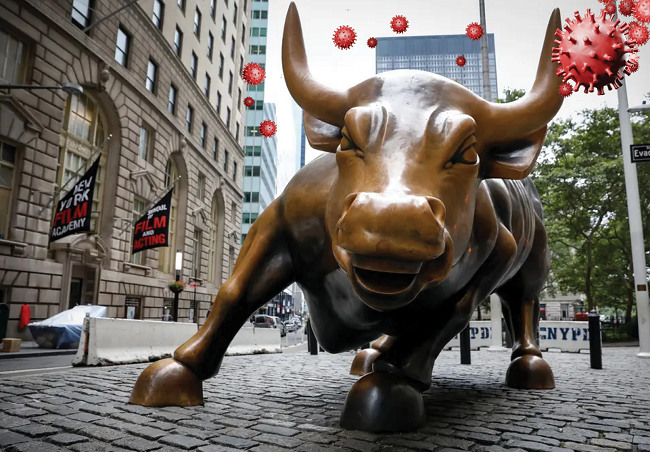| 
by Tom Bradley Markets have a way of making you feel smart, then dumb, then smart, dumb, smart, etc. Consider the last few months. In March, portfolios plunged, and hindsight reared its ugly head. "What were we thinking?" (dumb) But we did the right thing and took advantage of the weakness. Our managers' enthusiasm, better stock valuations and a high degree of panic prompted us to increase the equity content in the Founders Fund. As the market roared back, our purchases were looking good (smart). But stocks continue to go ever higher and we're feeling less and less smart. We continue to be well exposed to stocks and are benefiting from the rapid recovery, but we never would have predicted such a strong rebound. Investors seem to be focusing exclusively on the positives, which makes planning for a wide range of possible outcomes seem irrelevant. So why has the market been so strong in the face of more uncertainty than I can ever remember? Well, we don't know for sure, but here are a few things to keep in mind. The declines were overdone. The panic during the dark days of March was palpable. It may have been worse than anytime in my career. The sellers ruled the day and some of the down moves, in bonds and stocks, were mind blowing. It's important to keep in mind that we're measuring the rebound from these March lows, a starting point that was no more rational than the February highs. The market looks forward. The value of a company is derived from profits and dividends many years in the future. Short-term results have an impact, especially when losses are as large as they are right now, but it's usually overestimated. Mr. Market cares more about the company's strengths and relative position many years from now. The recovery has been uneven. Despite a wide range of possibilities, investors are looking for certainty and are willing to pay a high price for it. Those who are running to safety are accepting yields that are well below inflation. Those who want companies that are sure to thrive during and after the lockdown are also paying up. The U.S. market indexes have been driven by a narrow group of companies (mostly technology) that have seen their valuations expand significantly. Left behind are a slew of stocks that are still well below their 2019/2020 highs. A portfolio that's broadly diversified by industry and company type may be less expensive than it was three months ago. Rates, rates, rates. I saved the biggest factor for last. Everyone is talking about how we must adjust to the 'post COVID' economy but few are adjusting to lower interest rates. Rates have been low for some time but have gone even lower in face of a recession, and importantly, they're expected to stay there. This has a profound impact on the stock market. Lower interest rates translate into higher valuations. We don't know for sure what's driving the stock market higher but we're not beating ourselves up about it. Investing is not about predicting the future but rather building portfolios that are suitable for a variety of outcomes. In the Founders Fund, we've been doing some rebalancing to keep the equity content in check (now 64%), but we're sticking close to our target asset mix. We recommend clients do the same.
Read in browser »
 
Recent Articles:
| 

